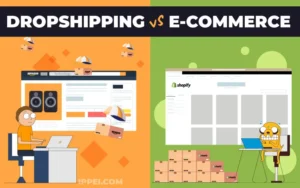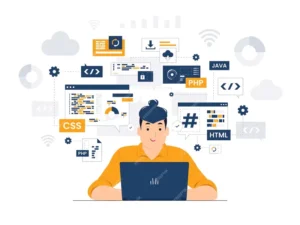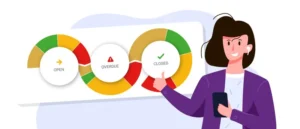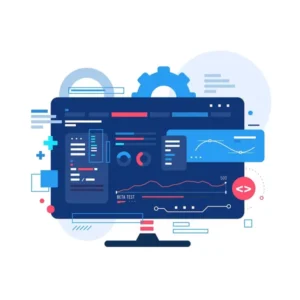How do you see the future of online surveys impacting businesses and consumers in the long run?

Online surveys have come a long way since their inception, and their future holds tremendous potential. As technology and methodologies continue to evolve, the impact of online surveys on businesses and consumers is significant. In this article, we will explore how the future of online surveys is poised to shape the relationship between businesses and their consumers in the long run.
Contents
- 1. Enhanced Consumer Engagement:
- 2. Deeper Insights and Data Analytics:
- 3. Personalization and Customization:
- 4. Real-Time Feedback and Decision-Making:
- 5. Improved Product Development and Innovation:
- 6. Ethical and Transparent Data Practices:
- 7. Continuous Engagement and Long-Term Relationships:
- 8. The Evolution of Customer Experience:
1. Enhanced Consumer Engagement:
The future of online surveys promises to enhance consumer engagement significantly. Traditional surveys often struggle with low response rates, making it challenging for businesses to gather valuable feedback. Emerging trends focus on making surveys more interactive, visually appealing, and tailored to respondents’ preferences. Gamification, multimedia elements, and real-time feedback mechanisms are some of the innovations that enhance the respondent’s experience. As a result, consumers are more likely to participate actively, providing businesses with richer insights.
2. Deeper Insights and Data Analytics:
Advanced survey tools and technologies are empowering businesses to gather more extensive and more granular data. This wealth of information allows for deeper insights into consumer preferences, behaviors, and expectations. The future of online surveys is not just about collecting data but also about leveraging data analytics. Businesses can use this data to identify trends, detect patterns, and make data-driven decisions that align with their consumers’ needs and preferences.
3. Personalization and Customization:
Consumers today expect personalized experiences. Online surveys are moving toward increased personalization, allowing businesses to tailor questions and content based on the respondent’s profile and previous interactions. This approach enhances the relevance of surveys and makes consumers feel that their opinions are genuinely valued. It also enables businesses to provide tailored solutions, recommendations, and products or services that cater to individual preferences.
4. Real-Time Feedback and Decision-Making:
The future of online surveys is characterized by real-time feedback mechanisms. Businesses can receive immediate insights, allowing them to respond promptly to emerging issues or opportunities. This real-time approach empowers businesses to be more agile, adapt quickly to market changes, and enhance customer experiences. For consumers, it means their voices are heard, and they can see tangible improvements based on their feedback.
5. Improved Product Development and Innovation:
Online surveys are evolving to become valuable tools for product development and innovation. Businesses can involve consumers in the co-creation process, from generating ideas to evaluating prototypes. This collaborative approach ensures that products and services are more aligned with consumer expectations and preferences. The future of surveys enables consumers to have a direct impact on the development of products and services, resulting in a more customer-centric approach to innovation.
6. Ethical and Transparent Data Practices:
Consumer awareness and concern about data privacy are on the rise. Businesses are adapting by embracing ethical and transparent data practices in their surveys. The future of online surveys involves a commitment to data security, informed consent, and clear data usage policies. When consumers trust that their data is handled responsibly, they are more likely to participate in surveys and share valuable feedback.
7. Continuous Engagement and Long-Term Relationships:
Online surveys are no longer isolated data collection events. They are part of a broader strategy for continuous consumer engagement. Businesses are using surveys to build long-term relationships with their customers. This approach fosters loyalty and advocacy. As consumers feel heard and valued, they are more likely to remain loyal and recommend the brand to others.
8. The Evolution of Customer Experience:
The future of online surveys contributes to the evolution of the customer experience. Surveys help businesses understand their consumers on a deeper level. This understanding allows companies to refine their customer experience strategies, address pain points, and deliver more tailored solutions. As a result, consumers receive a more enjoyable, personalized, and satisfying experience.
In conclusion, the future of online surveys is bright, with vast implications for both businesses and consumers. Enhanced engagement, personalized experiences, data-driven decision-making, ethical practices, and the evolution of the customer experience are some of the key outcomes. Businesses that embrace these trends can build stronger relationships with their consumers and thrive in an increasingly competitive marketplace. As the survey landscape continues to evolve, it’s an exciting time for businesses and consumers alike.









